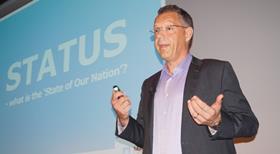
The global reefer shipping business will have no choice but to pass on an estimated US$1bn cost increase to its customers in 2015 as a result of new legislation banning certain types of high-sulphur fuel, the head of the world’s largest container shipping line has confirmed.
Thomas Eskesen, global head of refrigerated business at Danish giant Maersk Line, said the industry continued to struggle as far as achieving profitability was concerned and the new EU rules were beginning to have more and more of an impact as their official enforcement at the start of January came nearer.
“The new legislation is something we all want and we embrace it as a carrier for the future of mankind, but it will cost us US$200m next year, with over US$1bn in exposure to industry,” Eskesen commented. “And we have to pass this on to our customers. There is no choice. There is no debate [cutting emissions] is the right thing to do, but it costs money.”
For the international reefer shipping sector, higher costs couldn’t have come at a worse time. “We’ve worked really hard, but as an industry over the past couple of years we haven’t been able to raise profitability to an acceptable level,” he suggested. “Most of the shipping lines operating today are doing so at a distinct loss, accumulating negative cashflow of US$22.6bn since 2005.”
In the meantime, he said, there was rising pressure from customers to add value either by reducing costs or upping their service levels.
“We are seeing tremendous demand for better service and more products. For example, we’re told we could start a new service from Chile to Asia with fast ships or better cold treatment.
'There are lots of good ideas on how to improve our products, but it all boils down to value. Our customers are under pressure to bring value to their shareholders, but we’re doing that in an industry that isn’t making any money.”



